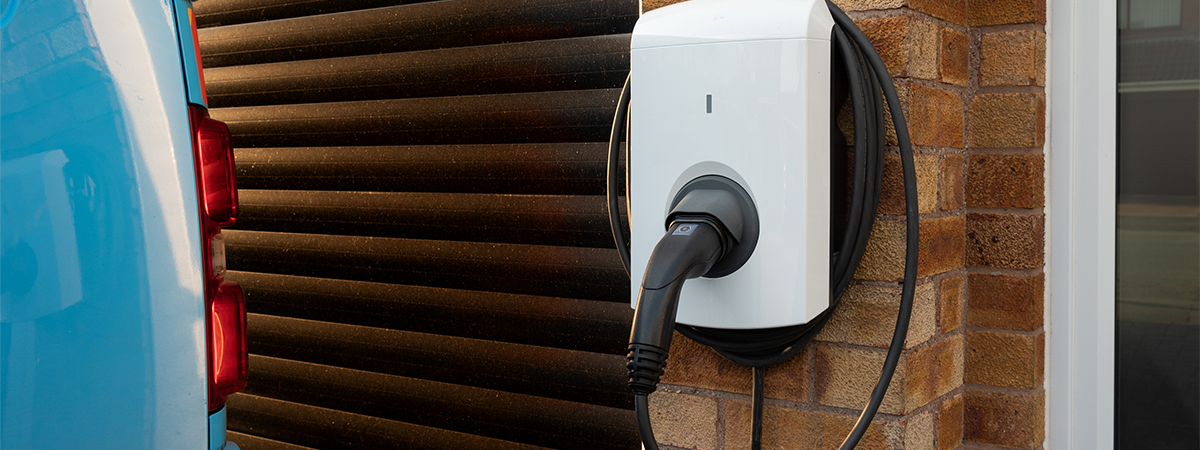
Did you know that when you buy an electric vehicle (EV), you need to think about your home as well? We asked one of our EV-expert electricians what your home needs so you can avoid surprises if you go green on the roads. To find out other EV information, like charging time and battery life, scroll through our previous EV blog.
Types of Chargers for Your Home
There are three different levels of EV chargers available. They are:
Level 1 Chargers:
- Plug into a regular 120V outlet.
- Charge very slowly at 5 miles (8km) per charging hour.
- Do not need any installation as it is just a connecting cable.
Level 2 Chargers:
- Use a 240V outlet, like a clothes dryer or stove.
- Charge at 30 – 50 miles (50-80km) per charging hour.
- Are most common for home charging.
- Require installation of a NEMA 14-30r or 14-50r outlet and charging equipment.
Level 3 Chargers:
- Known as DC Fast-Chargers (or Superchargers if you own a Tesla) and mainly for commercial use.
Should You Get a Level 2 Charger?
As a new EV driver, you’ll likely want a Level 2 charger installed at your home for its quick and affordable charging capabilities. There are two types of Level 2 charging systems: a wall charger or a charging cable. Both are fine options but installing a wall charger has two main advantages.
The first is safety. Charging units, like Chargepoint, have safety features like ground faulting and voltage checks so power only flows when it is safe. If there are any issues, you will receive a notification and the unit will flash red.
A charging cable functions like your phone charger; if it's plugged in, there is power in the cable. This can create dangerous conditions for charging if the cable gets wet. For this reason, many people choose to unplug the cable when it is not in use. This brings up the second advantage.
There is greater convenience in having an installed wall charger. Because of its safety, there is no hassle of plugging and unplugging a clunky cable in a big outlet. A wall unit also regulates the flow of electricity so your car charges quicker and more consistently. Lastly, the associated app allows you to schedule charging to the cheapest times, get reminders to charge, and track your charging stats.
What is Required to Install a Level 2 Charger in Your Home?
A Level 2 charger will increase your home’s electricity demand. Currently, your home probably has a 100-amp service, which means, at maximum, it can draw 100 amps at a time from the power supply. This is perfect for daily usage but not for the addition of a Level 2 EV charger. If your charger is not sufficiently powered, it will not charge your vehicle.
To understand this better, consider the Level 2 charging power needs of a Tesla Model 3 and a Ford F-150 Lightning truck.
A Tesla Model 3 charger draws 32 amps (from a 40-amp breaker).
A Ford F-150 Lighting charger may draw up to 64 amps (from two 40-amp breakers).
With everything already using electricity in your home, a new 40-amp breaker will not receive enough power to charge your car. The remedy is an electrical service upgrade. Think of a service upgrade like exchanging your garden hose for a firefighting hose, but for electricity. By installing larger electrical equipment, your home can draw 200 amps, which will power everything comfortably.
However, the F-150 may require more than a 200-amp service could provide. In this case, a load-shedding device may be needed to manage your power. This is a quite rare occurrence, though.
What Are the Associated Costs of Installing a Level 2 EV Charger?
The cost of a car charger installation starts at about $700 but can go up depending on the work needed. The placement of the EV charger is a significant factor. Usually, the closer it is to your existing electrical infrastructure, the lower the costs.
The cost can significantly increase if you need other additions, like a service upgrade or surge protection. Service upgrades start at approximately $4,000, whereas the addition of surge protection is about $300.
If you have more questions about installing an EV charger in your home, we’d be happy to help! Drop us a line at Kraun.ca/contact.
Did you know: CAA Members save 10% on the installation of an approved Electric Vehicle Charging Station at Kraun Electric! Learn more here.
 Ontario
Ontario